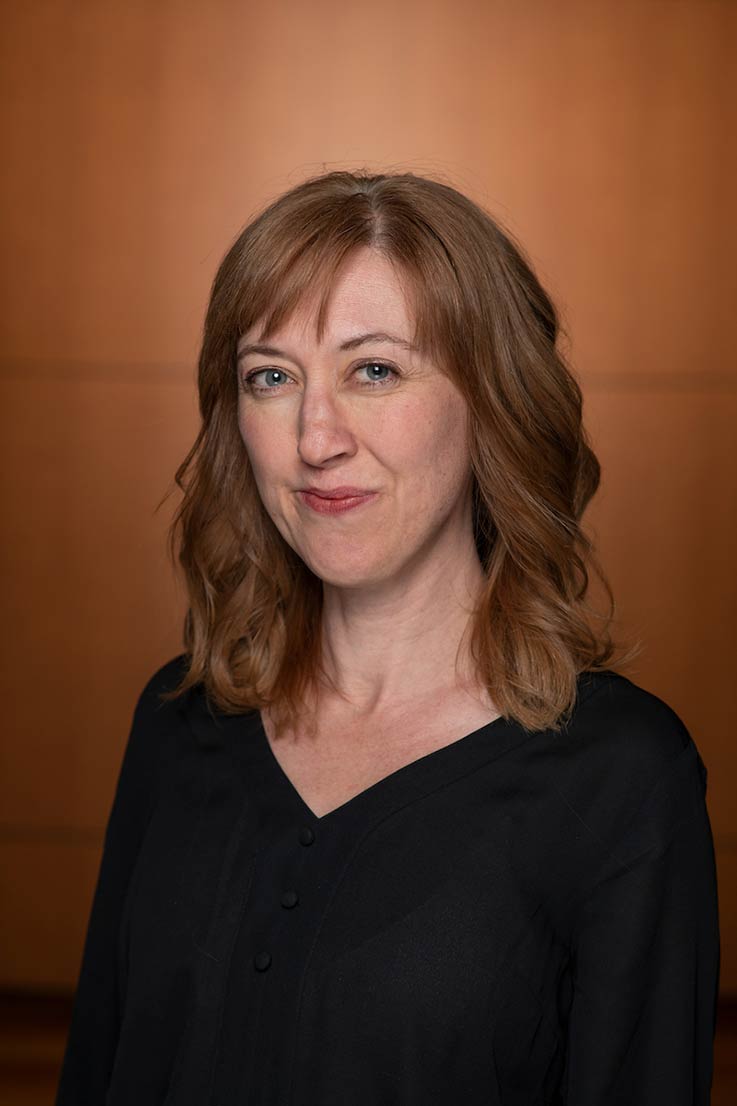 Amanda Poole, a faculty member in Indiana University of Pennsylvania’s Department of Anthropology, has been selected for the Fulbright Specialist Program and has been approved to work on a project in Madagascar.
Amanda Poole, a faculty member in Indiana University of Pennsylvania’s Department of Anthropology, has been selected for the Fulbright Specialist Program and has been approved to work on a project in Madagascar.
The Fulbright Specialist Program was established in 2001 by the Fulbright Program to provide opportunities for academics and other professionals in the United States to engage in two- to six-week, project-based exchanges at host institutions in 150 countries and areas around the world.
Poole is IUP’s sixth faculty Fulbright Specialist and will hold this distinction for three years.
The Fulbright Program provides funding for approximately 9,000 merit-based scholarships in the United States and more than 160 countries every year to accomplished students, scholars, teachers, artists, and professionals of all backgrounds and fields, usually for the academic year.
IUP faculty and administrators have received 75 Fulbright scholarships since 1951, and 20 IUP students or recent alumni have received Fulbright scholarships since 1968.
For her project, Poole will collaborate with the Institute of Anthropology and Ecology at the Catholic University of Madagascar to develop a course on the anthropology of Indianoceania. She will travel to Madagascar in October for the project.
“This is an honor and a great opportunity. I’m excited to support the efforts of this institute in growing their ecological and environmental anthropology program to meet a growing demand for this field in coastal and island communities,” Poole said.
“Dr. Poole, who is outstanding in the classroom, is internationally known for her research, so the Fulbright Specialist position is a very well-deserved honor,” Ben Ford, Distinguished University Professor and chair of the IUP Department of Anthropology, said. “Her experience in Madagascar and with the Institute will offer new perspectives—and new opportunities—for our students and for the faculty and staff of the host university there,” he said.
Poole’s research interests include both anthropology and ecology, including climate change and migration in the Horn of Africa. She found the Institute of Anthropology and Ecology while planning her project for her upcoming sabbatical in spring 2024 and had begun working on the project prior to her Fulbright Specialist application.
“For the field school, and possibly future research, I am interested in looking at the importance of cultural heritage and local environmental knowledge of island and coastal communities in climate change mitigation,” she said. “Working with the Fulbright Specialist Program for this short-term assignment is a great opportunity to extend my work in this field, and also offers a great opportunity to explore the possibility of a new field school site and exchange opportunities there for our IUP students,” she said.
Madagascar is often known because it is the only place where lemurs live, but it’s actually a very important site because of its biodiversity, Poole said. It’s also very unique culturally for its African, Asian, and European linkages and its regional role in the Indian Ocean, she said.
Poole is the head of the cultural anthropology curriculum committee in the Anthropology Department at IUP, where she has been involved in curricular revisions focused on applied anthropology, with interdisciplinary connections to sustainability studies. She designed and piloted a class with a counterpart at the Institute of Anthropology and Ecology in their online master’s program, Anthropology of Indianoceania, and will use this experience to assist them in curriculum development.
She also will deliver a workshop for faculty and graduate students there on best teaching materials and practice in the field of anthropology and ecology, including a focus on high-impact teaching methods and student research.
Poole also will share information about other US-based organizations focused on anthropology and ecology, with potential for scholarly collaboration, funding, and publication venues.
Poole’s project is IUP’s first collaboration with the Institute of Anthropology and Ecology and with Madagascar. She believes it also will expand the reach of the Institute and the Catholic University of Madagascar.
“Institutional linkages in Madagascar tend to be more Francophone, so this also is a new opportunity to create connections with the Institute and support the University’s English language collaboration,” she said. “The Institute has been growing an online program mostly for students from Francophone Africa, so it’s a really exciting opportunity to support the teaching of applied methods and theories from cultural and environmental anthropology in ways that can support the work and professional aspirations of these students.”
The Fulbright Specialist Program is administered by the US Department of State’s Bureau of Educational and Cultural Affairs and World Learning.